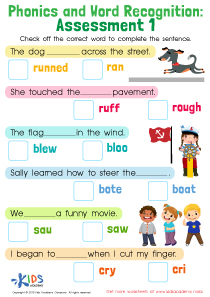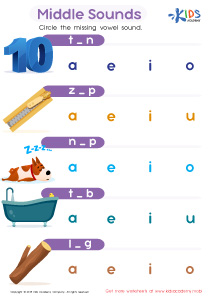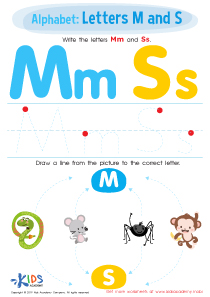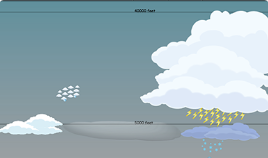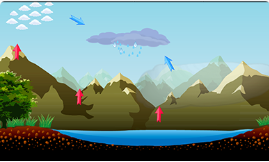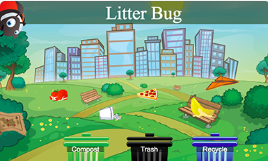Social Studies Lessons | Economy
5 results
Introducing our exciting new Economy Lessons! Designed for children in Preschool, Kindergarten, Grade 1, Grade 2, and Grade 3, our interactive worksheets provide a fun and engaging way to learn about economics and money management. With the addition of educational videos and assessment quizzes, your child will have a comprehensive understanding of economic concepts such as budgeting and saving, entrepreneurship, and consumerism. Let us help your child develop prudent financial habits and business skills that will last a lifetime. Grab your copy of Economy Lessons now and embark on a journey towards a financially savvy and successful future!
Economy Lessons for children in Preschool, Kindergarten, Grade 1, Grade 2, and Grade 3 are incredibly helpful in enriching the knowledge and understanding of these young learners. The economy is a vast subject that affects every aspect of our lives, and introducing children to economic concepts early on can have significant benefits in the long run.
The interactive worksheets, educational videos, and assessment quizzes used in these lessons make them engaging and interactive, ensuring that children remain focused and interested throughout the learning experience. The majority of these lessons are designed to develop critical thinking, problem-solving, and decision-making skills, which are essential skills needed in later life.
Starting the economic lessons in Preschool ensures that children gradually develop an interest in the subject, and that interest grows over their academic years. As the children learn about the different concepts, they develop a foundational understanding of the economy and its importance.
For Kindergarten level, the Economy Lessons help teach children about money and its value. They learn how to count money, identify its different values, and learn about the use of money in the real world. The lessons help develop skills that prepare them for everyday life, such as identifying needs and wants, saving, and spending.
Grade 1 Economics Lessons focus on introducing children to the concept of goods and services. Children learn how goods and services differ from each other and understand how people and businesses exchange goods and services. These lessons also focus on essential financial literacy skills such as saving, budgeting, and making wise financial decisions.
Grade 2 Economic Lessons build on the work done at the Kindergarten and Grade 1 levels and help children develop more advanced financial literacy skills. They learn about the role of different economic systems such as markets and how they work. These lessons also help children think critically about the impact of consumer choices and how to make informed decisions.
Grade 3 Economic Lessons delve deeper into the concept of money, the economy, and how it affects different aspects of our lives. Children learn about the basic economic principles around supply and demand, scarcity, and opportunity cost. Lessons also cover topics such as entrepreneurship and natural resources, helping children understand the importance of conservation efforts.
In conclusion, Economy Lessons provide a wealth of benefits to young learners in Preschool, Kindergarten, Grade 1, Grade 2, and Grade 3. These interactive lessons develop critical thinking, problem-solving, decision-making skills, and broaden their understanding of the world around them.

